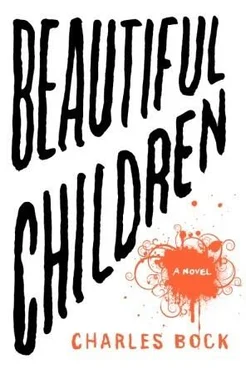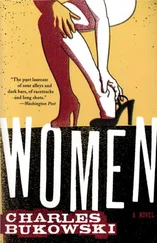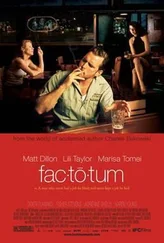She became aware of a muted warmth down the breadth of her back, of heat, thick and heavy in the air around her. For the first time she noticed the droning sound, carrying through the space above her, from someplace far behind her. The girl lay in the darkness and listened for a time, but time did not prepare her for even more blackness when she opened her eyes, a darkness so complete that she could not tell if her eyes indeed had opened. The girl became confused as to whether her body could even follow basic commands. Panic garbled any logical counters, any answers. But soon a thaw began as well; her eyes adjusted a bit, differentiating shapes — the impenetrable roof and walls that framed her confines, the shade of what might have been the evening sky, apparent now through what must have been some sort of window.
Looking beyond the length of her body, she successfully made out more shapes — the outlines of a number of short square objects, and then the table around which those crates were positioned. Pressure crawled to her temples and bore outward and she was sure it would emerge from the front of her skull. Instinctively, the girl started her hand toward the pain. But was restrained — around the wrist. She pulled a second time, confused now, her eyes following the roll of her shoulder, her head turning.
Suspended in a dim, flickering crimson light, she saw her arm hanging limply behind her, connected to a long crate, attached to some sort of handle. Metallic heat, like a thin bracelet, ran across her wrist. The rest of her hand tingled, was numb, and looked to be smothered inside a folded black cloth.
Panic rushed her. She pulled at the restraint again and the fabric stretched and the knot slipped, then held. The girl tried once more and failed — but wait, something jiggled that time, atop the crate, the red light toppling now, landing with a sick thud.
It wasn't much — maybe twenty watts, flickering from a lava lamp with drained batteries, but the light flickered along her right like an asp, allowing the girl to see more of her predicament: her summer vest unbuttoned, its left flap folded on itself, its stitching apparent. The cup of her bra was misaligned and mangled, she saw, and a swell of her flesh was peeking out from the mashed wire edge. She saw the hollow of her belly, slick with sweat. And her skin. It was smeared with crimson that had nothing to do with illumination.
Percussions continued through the background. Outside the nearest wall, two guys were talking. The girl did not cry out to them. The light dimmed around the area where her hips began — right where her skirt was bunched, askew, turned half backward. The girl kept staring at her body. Moving her left hand, she discovered it was not bound. She found that her feet and legs were also free. The girl tentatively started to sit up. And felt a spasm of pain, sharp and white, in her core.
And then a great wail cleaved the night, piercing at first, fanning out from the stage in all directions like beams of the sun through a downtown skyline. The tones and feedback altered as they carried, creating their own effects and grades. Sweaty strands fell in front of the guitarist's face and he addressed his strings and frets and whammy bar, wailing, keeping his pick against the uncoated third string, extending and then bending each played chord, repeating the song's central riff, but changing it for his own purposes, easing from it a vulnerability, the fragility that by nature must lie beneath so much bombast — this exquisite sense of despair.
Flickers now: a few thumbs pressing down onto plastic ignition wheels, flames dancing atop disposable plastic, hands rising into the night, the time-honored arena rock tradition that borders on a parody of itself, the virtuoso getting his props from the appreciative and the knowing and the poseurs who wanted to look like they also were in the know — as many as ten lighters flaming up. Maybe twice as many people had their eyes closed, were giving themselves to the groove.
Chewing the end of his swizzle stick, Bing Beiderbixxe did not acknowledge the waitress's impatient posture, nor her withering glare. Instead he looked toward the mouth of the small booth, and the black curtain at the entranceway.
Just wait here, the stripper had said, three ten-dollar Pepsis ago. I'll be right back.
The Library strip club came and went, as did the Gambler's Book Shop, the Liberace Museum, the Pinball Hall of Fame, and that indoor shooting range where a hundred bucks got you a half hour with an automatic rifle. Places Newell had never been and places he did not recognize and places that passed without thought or notice. His attention was occupied by a peculiar kind of righteousness: the angry certainty that comes from basking in the knowledge that you have been wronged; the cynical defiance of a person who finds his pain to be an excuse, whether he knows this or not. A damaged person intent on ignoring his own mistakes, refusing to examine anything he's said, anything he'd done. (Why should I? Why?) Newell's thoughts were soupy, numb. But something else was stirring within him. Growing out of the muck, it was the smallest of sensations, but was quickly increasing in intensity, this molten warmth.
Cheri blinked, pulled on her closed lid, and rolled her eyeball — a childhood trick to get out sand. Rubbing her tearing eyes, she used the break to catch her breath a bit. Nearby some obnoxious idiot kept screaming for the band to play “Free Bird,” and enough people were laughing to egg him on, and Cheri stumbled away from that area as best she could, her vision returning now, enough to where she could get back to her search, her attention shifting toward any flash that might have been promising — the parent grabbing his daughter by the ear and screaming that if she ever took the Escalade again, he was calling the police, understand; the shiny surface of plastic backpacks gleaming; a pair of girls dragging a third out of their clique, and into a private consultation. Now someone zagged, sprinting as best he could. But his gait was all wrong, Cheri decided. He was too slow. Too scrawny.
She paged Ponyboy and got jack shit in response. Cheri checked her phone's digital log for the umpteenth time, then dialed the number that, earlier in the night, Ponyboy had called from. A voice mail started; Cheri had grown familiar with the message by now — it was really funny, a boy, probably nine years old.
It seemed fantastic to Cheri that she'd believed she'd find Ponyboy out here. Just deciding where to look next was almost too much.
Ever since that nightmare of a tryout, Cheri had been committed to watering her plants. She'd entertained unfocused thoughts about getting a kitten and returning to school. Certain emotional complications had been too tangled for her to take on, she just hadn't had the inner strength to face them. Nonetheless, personal growth had been a definitive and predominant aspect of Cheri's thinking. And even more resonant was a single carved truth: she would never be put through anything like that again. If Cheri had to be as ruthless as the people in Jabba's office had been to her, so be it. If she had to treat anyone in her path as the slice of meat she herself had been treated as, this was the way of the world.
Was that why she'd given the comic book guy's idea to the one person whose schemes routinely bested themselves as the worst things that ever happened to her?
Was that a good enough excuse?
Her ears, still ringing from the strip club's sound system, were full of drone and fuzz, and the earth was consistently presenting itself at lower plateaus than Cheri's feet were ready for. Cheri didn't pause for a second, but kept stumbling down that small dune, moving as best she could in her flip-flops. Because whether she told herself she would be ruthless or not, the truth was, Cheri couldn't ignore the other side of ruthlessness, the people who were put upon, the price of suffering. It wasn't something she could just turn off. She'd tried to do so tonight, but her conscience wouldn't let her. And now, heading down into the desert, Cheri kept seeing how young all these partiers were. Even the ones who were her age looked infinitely younger than Cheri felt. All too well Cheri understood the way these anarchist chicks would titter and coo when Pony-boy showed them the slightest bit of attention — how their gangly bodies would wave in place, their eyes going bright and dreamy.
Читать дальше











